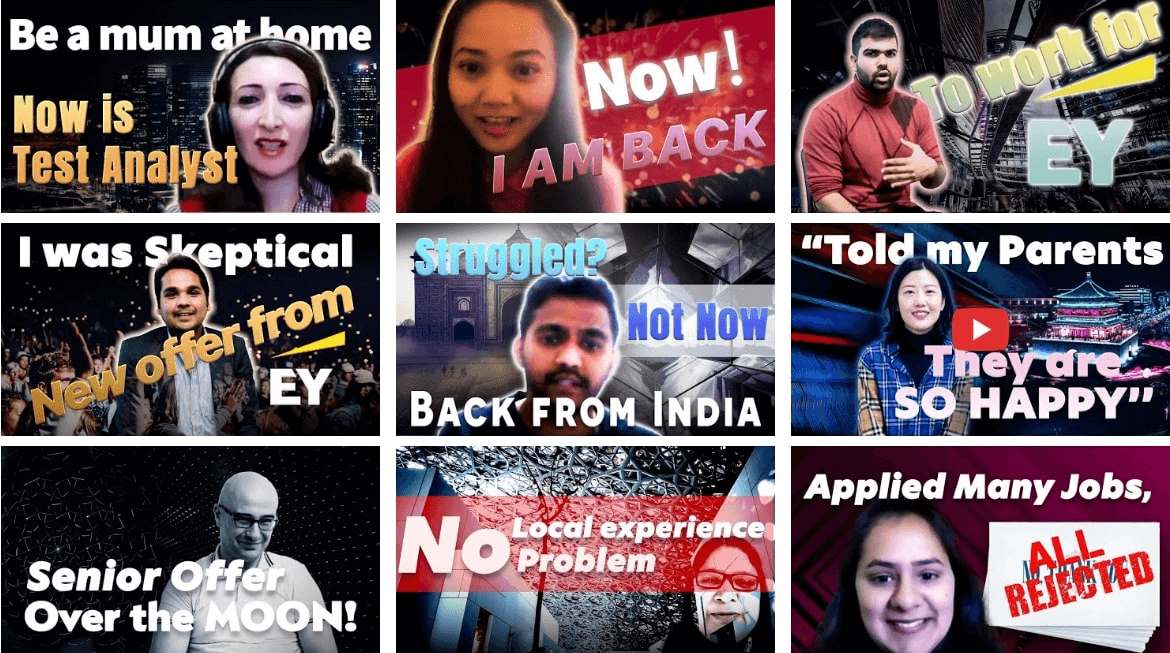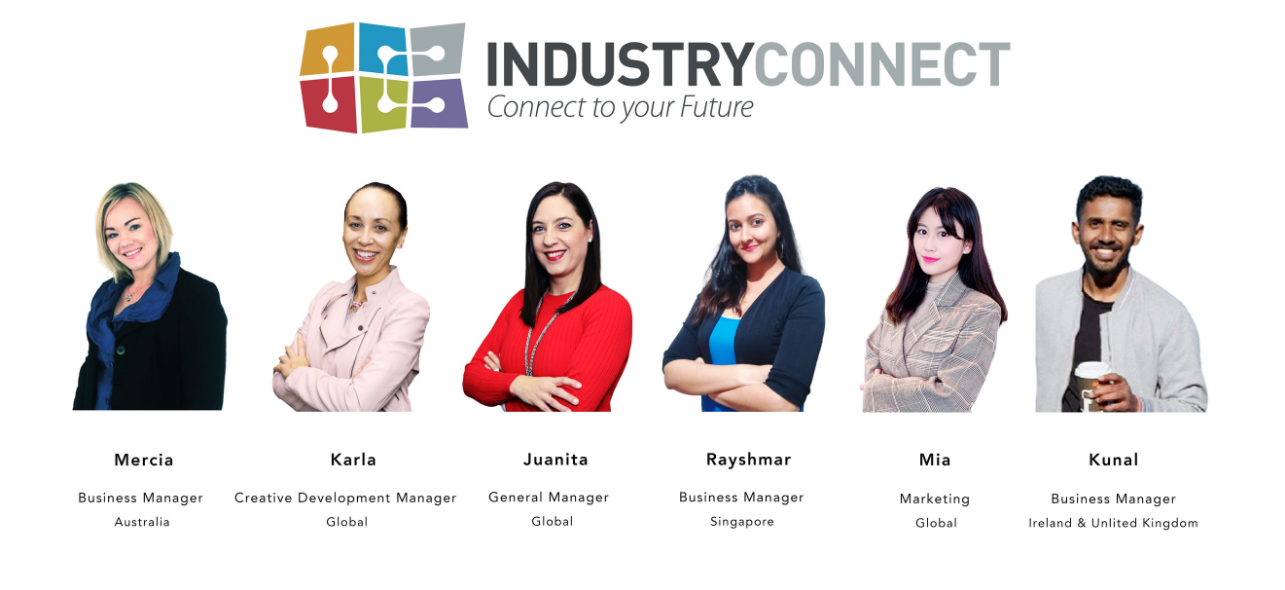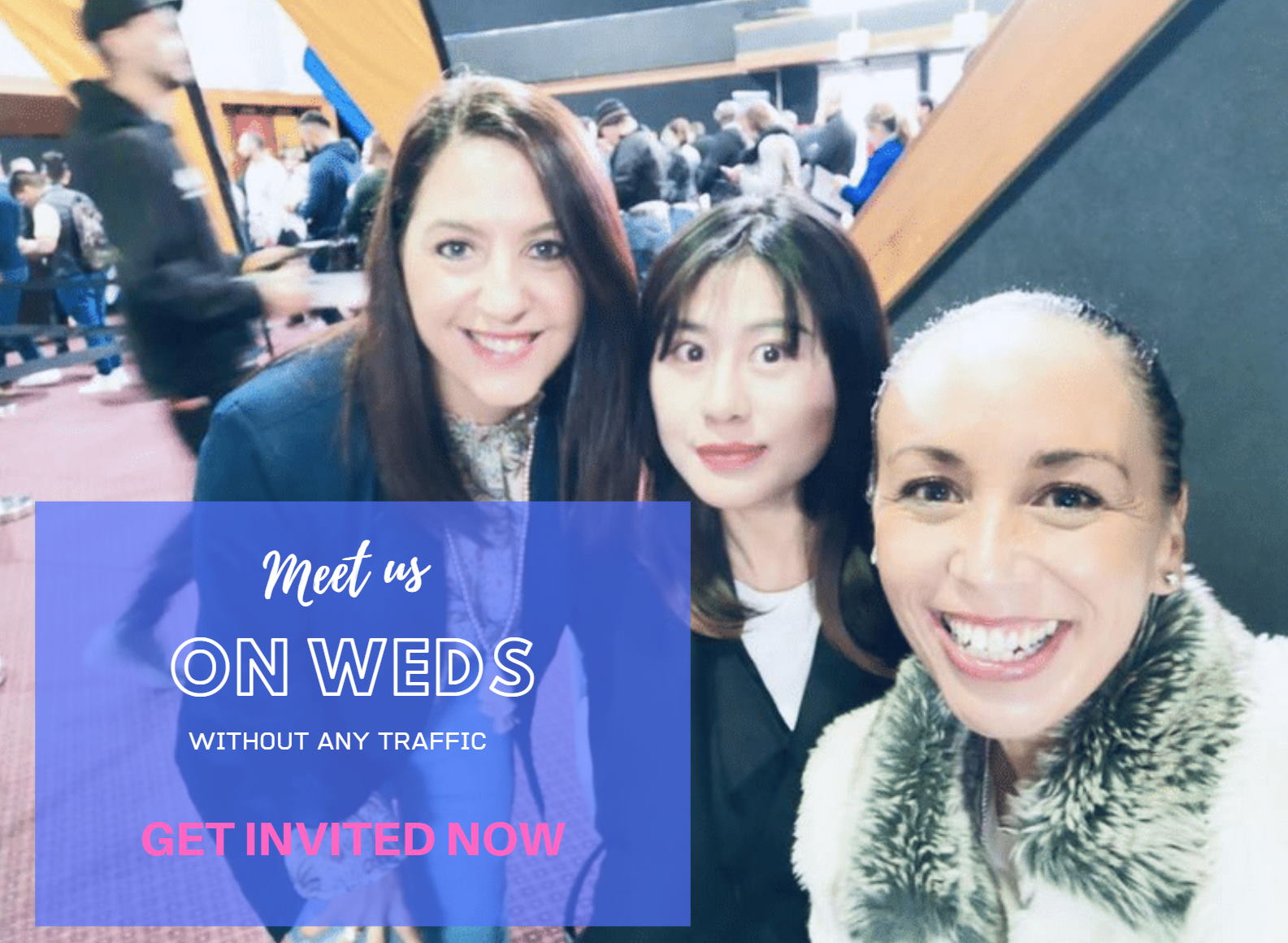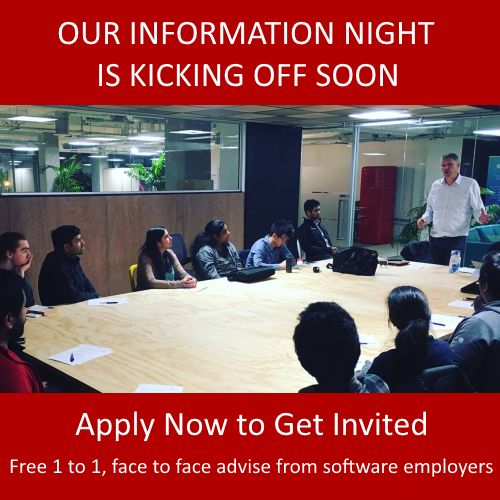Software development is one of the greatest careers of the 21st century, the digital age. It is also one of the most rapidly growing in-demand skills in New Zealand. Indeed, it is listed in Skills shortage list by Immigration New Zealand and Careers New Zealand lists technology among the industries that showed strongest employment growth over the year to June .With so many start ups and rapidly growing IT businesses in New Zealand, IT skills are predicted to be in high demand, actually in shortage for quite some time. So much so that the government is even investing in software skill development schemes to meet industry demand. This may come as a surprise to a number of recent graduates and to some extent career changers who are finding it too hard to get t to get the foot in the door. While the demand is high, employers and recruitment agencies are still looking for candidates with the right skills and experience. This makes it very hard for jobseekers with no “commercial” experience.
Earlier this year, I found myself in the same situation and it took me about eight months to enter the industry. This is my journey. I want to share it with other jobseekers out there. Their circumstances may be different, but I think there may be episodes of my battle that look more like theirs and lessons they may learn from my experience. From February this year, after a thorough analysis of the current job market, I have decided to switch careers from Electronics Engineering to Software Development. While, unlike young graduates, I had been in work for some years, my work experience and skills were not what employers in Software were looking for. And since I was not a graduate per se, there were lots of “graduate” opportunities I did not qualify for and a number of internships I could not take because of family responsibilities and associated financial commitments. So I have to find unusual ways to get in. This is the experience I would like to share with other job seekers in similar situations, graduates and career changers alike. The following are a few ideas I believe helped me in the journey:
Get an all-round overview of the industry.
There are lots of technologies, frameworks and programming languages out there. It is impossible for the human brain to absorb or comprehend all there is to know in this industry. Even what we know –or think we know-today may be obsolete tomorrow. But it pays to understand at a higher level what the trend in the industry is. This is not extremely difficult to do. Just a quick look at any career portal may give you a clear indication on what employers are looking for. Meetup.com is yet another platform on the web where you can get an idea of what is going on around Auckland (yes I am local!).
There seems to be meetup groups for all sorts of things, but I guess at the moment we are more interested in Technology-type meetups. Some meetup groups seem to focus on a particular technology or language: .Net , Java, Closure, PHP, Magento, WordPress, Android, Linux, etc). Others do not focus on a particular technology, framework or language, but rather on general principles of software development, Testing and Data analysis (Continuous Delivery meetup, Auckland Software Craftsmanship, Agile Auckland, WeTest Auckland, Big Data). In the beginning, I attended as many of these meetings as I could, regardless of the technology. You really get to learn a lot in terms of technology and new trends in industry. When doing a programming course (either at University, College or learning by yourself), the focus is more on the core features of the language. There are a lot of aspects of software development you don’t get to learn about, such as version control (git/github for example), unit testing (and software testing in general), defensive programming, agile methodology etc. Participating in these meetups will challenge you to learn more on these aspects and give you a rich vocabulary to use in interviews or elsewhere (and look like a pro!).
I found these meetups not only informative but also a good opportunity to network with professionals in the sector, which leads to the second point: Connect (Networking is a cliché!).
Network
I am not going to say much about the importance of networking. If you are looking for a job in Auckland, I am sure you are sick and tired of hearing this N-word! I understand. Been there. Done that! But, seriously, as far as IT goes, these meetups are a golden opportunity to connect with lots of other geeks. Most of these meetups are sponsored by big software shops around Auckland (Microsoft, Orion, Xero, Vend etc) and organised by leaders in the industry. I started off with Auckland CITCON in February 2014. Before you jump on Google, CITCON (say KITKON) stands for Continuous Integration and Testing Conference, “ a world-wide series of free Open Spaces events for developer-testers, tester-developers and anyone else with an interest in Continuous Integration and the type of Testing that goes along with it “.
The conference was a valuable opportunity for me to learn more about the Software industry. Honestly I was fascinated by the sheer number of people working in testing alone and the body of knowledge in the area. After listening to a number of presentations and speaking to a number of participants, my interest in Software rose to fanatical levels. From then on, I have been participating to a number of meetups and met a lot of developers, testers, managers, entrepreneurs, IT students and enthusiasts.
I got to know about a Software Job-Ready Programme (Industry Connect) in one of the Big Data Meetups in Takapuna back in March, where Andrew McPherson, ECONZ’ s CEO did a presentation on big data technologies and mentioned a programme to bridge the gap between education institutions and industry. I followed up and joined the programme; it boosted my CV, enhanced my skills and helped me get a job four months after joining.
I have only mentioned meetups in this section, but it is of course not the only venue for networking and you don’t have to only network with IT people…but as I said, you have heard this before, haven’t you!
Go and Learn!
The software industry is very meritocratic: the more you know the more respect you will earn. Even as a graduate, you will stand out during the interview and on your CV if you have done some learning beyond the classroom and know more than Algorithms and SoftEng 301. There is a lot of online material to learn from. I started with Microsoft Virtual Academy (after weeks of intense consideration about which language to learn, I settled with C#). Here, there are a lot of video courses on most Microsoft technologies. I did, in order, Software Fundamentals, C# Fundamentals, Html, JavaScript and Database. These introductory courses gave me a high level overview of software development. But you don’t stop there; Microsoft Virtual Academy has more advanced jumpstart videos and there are plenty other online resources (free, cheap and expensive) that can help you master a certain technology. The three I most liked are: Udemy, Pluralsight and Lynda.com. The not-so-good part here is that you have got to pay to do most of their courses, except for Udemy where you may find free short courses. With Lynda.com and Pluralsight, I used their free trial to learn things I could not find for free elsewhere!
Practice. Practice. Practice
While books and videos are important resources, one cannot go too far without practicing, particularly if one wants to be a programmer. Writing code, reading other people’s code and doing small projects goes a long way towards mastering software engineering. It also proves to prospective employers that one is committed to learning and investing time (and sometimes money) in the process. I started off with small projects on my machine, then learnt about git and pushed some of my projects on github. I went further and build a small website using WordPress. I know, building a WordPress site is not necessarily classified as “Software engineering”, but having a live website online in a weekend was extremely encouraging to me. Now I can point prospective employers to my website, which may give me a competitive advantage over other applicants who have got their work on a hard drive or no code at all. And again, it is proof that you can do, that you are serious about it and especially that you are passionate (who else would waste their time and money building a website, registering a domain and getting it hosted, knowing that it is not going to generate any revenue? That must be passion, right?). Such a site can also be your playground. You are not restricted to using templates and plugins as you download them; you can customise them, dive deep in PHP code and work on your front end to hone your skills in html, CSS, JavaScript and using APIs. You can take it further and start blogging.
Conclusion
While the IT industry is growing in New Zealand, and IT skills are generally in high demand, it is somehow difficult for graduates and unexperienced jobseekers to get a job. To stand above the crowd and increase chances of being hired, one has to devise a job search strategy that may include research, networking, continuous learning and practicing.
Bede joined Job Ready Programme at Industry Connect in mid 2014, he is now working full time as Software Tester/Developer at ITL.
What is Industry Connect?
Industry Connect is an IT/Software Career Launchpad that has everything you need
to kick-start your IT/software career in AU, NZ, UK, IE, SG, HK, IN, ID, VN & PH.
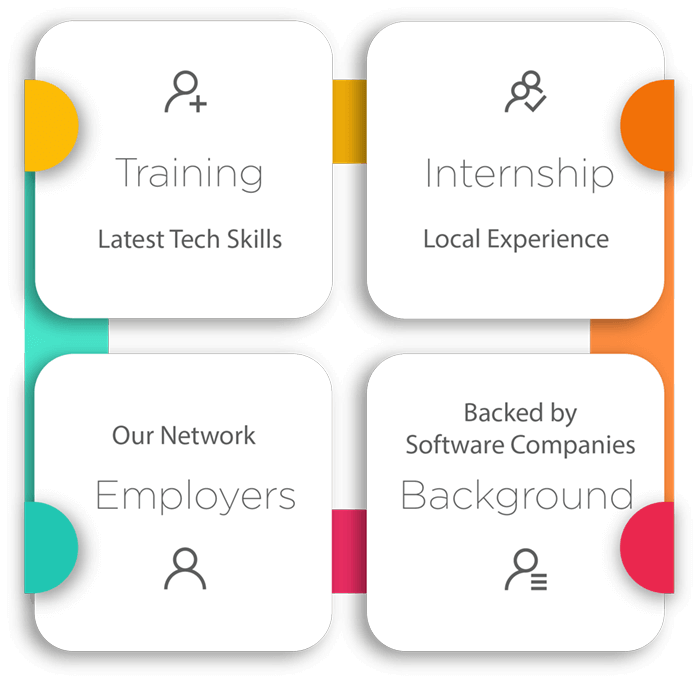
We have been helping career changers, recent IT graduates and people with a career gap
to start their IT/software careers.
Over the years, we have helped hundreds kick-start an IT/software career.
(Verifiable evidences are available on this website)
OUR CORE
We are an innovative software training school backed by global/local software companies.
Our ecosystem is an incubation process that supports our participants until they launch
a tech career.
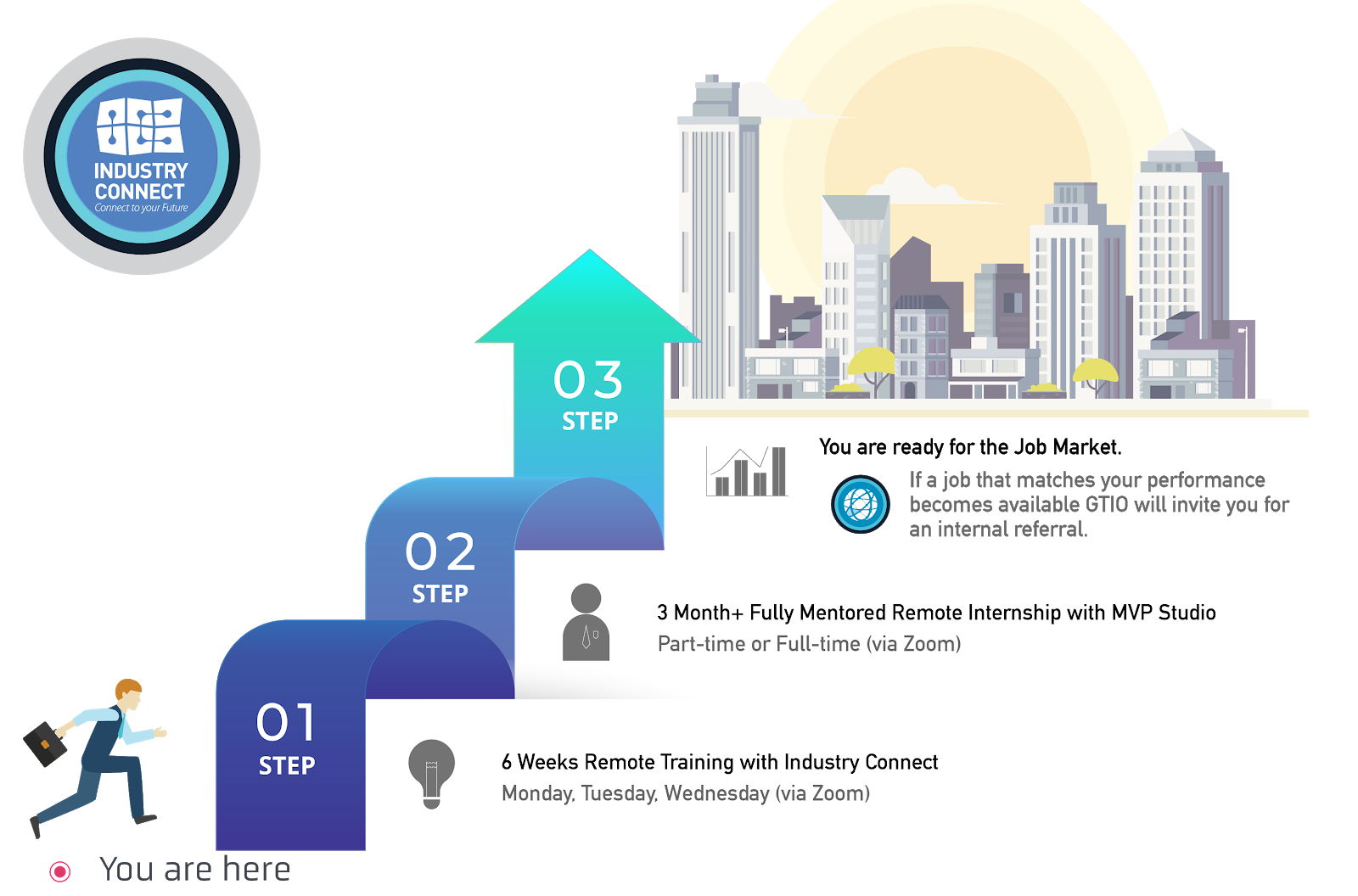
OUR PROGRAMMES
Our Job-Ready training programmes focus on:
- Software Development
- Business Intelligence (or Data Analyst)
- Test Analyst
PROGRAMME STRUCTURE
- Six Weeks Training Classes (Practical Tech Skills)
- Three Months (or more) Structured Internship on Large Commercial-Scale Projects (flexible hours)
- Employer Network (job analysis and internal referral if goals are met)
You can join us via Zoom (live face-to-face meeting) remotely from anywhere and
“download” the valuable knowledge & experiences from our tech experts across
different tech centres.
Watch 300+ Stories of Career Starters in IT/Software
- Career Changers & Switch to IT
- Recent Graduates
- People with a Career Gap
- New Software Developers
- New BI or Data Analysts
- New Test Analysts
Click the image to watch those who changed their careers to IT, had gap years and recent IT graduates.


